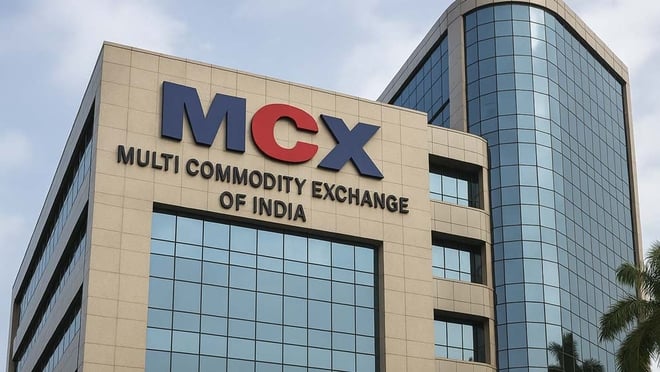Technical Glitch Delays Market Opening at MCX; Regulatory Probe Underway
- byAman Prajapat
- 29 October, 2025

In the pre-dawn hours of Tuesday, October 28, 2025, the nation’s largest commodity derivatives bourse, the Multi Commodity Exchange of India (MCX), found itself facing a serious operational setback: a technical malfunction that delayed the start of trading by more than four hours, and triggered a regulatory inquiry into its systems and resilience.
The disruption
MCX had been scheduled to commence its regular trading session at around 9:00 a.m. Indian Standard Time. However, within minutes of that scheduled open, the exchange issued circulars that the start would be delayed due to an unspecified “technical issue”.
Initially the delay was communicated as a move from 9 a.m. to 9:30 a.m., then again to 10 a.m., 10:30 a.m., then 11:49 a.m., and 12:35 p.m. before finally announcing that normal trading would resume from the exchange’s Disaster Recovery (DR) site at 1:25 p.m.
According to MCX’s own regulatory filing: “Due to a technical issue at the Exchange … the commencement of trading on Tuesday, October 28, 2025, was delayed. Operations were shifted to the Disaster Recovery (DR) site, and trading started at 1:25 p.m.”
The systems are said to be functioning normally now, however the exchange has launched an internal investigation into the root cause of the disruption.
What was affected
The outage did not just delay the opening bell — it impacted trading of key commodity derivatives contracts, including gold, silver, crude oil, copper, zinc and aluminium. Several market participants reported that even after the DR site switch, execution of trades remained problematic for some contracts.
For traders accustomed to smooth, timed openings, this kind of delay carries cost, risk and uncertainty — especially in volatile commodity markets where timing matters.
Regulatory reaction
The Securities and Exchange Board of India (SEBI) has stepped in and requested a detailed report from MCX regarding the disruption. The regulator has questioned senior exchange officials, and noted this incident comes after prior outages, thus raising broader concerns about the exchange’s trading infrastructure and operational resilience.
One source told Business Standard:
“Such technical issues deteriorate trust in the ecosystem. It is pertinent that the confidence is restored amongst the market participants. MCX must work on the infrastructure so that such an outage does not occur again.”
In earlier years, MCX had faced similar disruptions — for example, a four-hour outage in February 2024 linked to a platform migration, and in July 2025 a delay over an hour caused by a database issue.
The regulatory standard cited: if an exchange’s delay exceeds 45 minutes, SEBI seeks a report; interruptions longer than 75 minutes may attract financial disincentives.
Why this matters
For an exchange of MCX’s scale, continuity and reliability are non-negotiable. Market participants — brokers, commodity traders, risk managers — all base positions and hedging strategies on timely openings, transparent pricing and stable systems. A delay disrupts plans, increases transaction risk and may erode trust.
Moreover, the incident comes at a time when technology in exchanges is under increasing scrutiny. MCX had been in the process of migrating its trading platform — a move delayed and under regulatory oversight.
The recency and repetition of glitches raise questions about vendor execution, system architecture, disaster recovery readiness and governance of market infrastructure.
The response from MCX
MCX in its statement said:
“We are committed to identifying the cause and implementing necessary corrective measures. Updates on our findings and actions taken will be shared in due course.”
The exchange expressed regret and thanked market participants for their patience. Systems are now functioning normally, though the investigation remains ongoing.
Implication for market participants
From a trader’s or investor’s perspective, here’s what this means:
Operational risk: Even if rare, such delays expose users to market risk if hedges cannot be placed, or if price discovery is delayed.
Confidence and reputation: For MCX, repeated outages can erode confidence among members, possibly increasing cost of membership or altering behaviour.
Vendor and platform scrutiny: Given MCX’s platform migration history, brokers and counterparties might demand clarity on fallback systems, contingency plans and vendor accountability.
Regulatory oversight: A stricter regulatory stance may follow — including penalties, mandated disclosures, more rigorous stress-testing and perhaps revised service level requirements for exchanges.
Costs to ecosystem: Beyond the exchange itself, brokers, clearing members, members who rely on timely access, temporary price dislocations — all carry hidden costs.

What happens next
The key next steps to watch:
The detailed investigative report from MCX to SEBI: it should explain root cause (database, vendor, hardware, software, human error), systems tested, timeline of switch to DR, impact quantification.
Any regulatory action by SEBI depending on findings — possible fines or mandates for faster remediation.
Steps by MCX to bolster its infrastructure: improved DR readiness, alternate vendor arrangements, stronger change-management, better communication protocols.
Member reactions: whether brokers/traders demand concessions, compensation, or reevaluate their reliance on MCX.
Market behaviour: whether participants factor in higher systemic risk in commodity trading infrastructure and possibly adjust margins or trading strategies.
Historical context and lessons
While India’s exchange ecosystem has matured significantly, technology remains a key risk vector. MCX’s previous outages – for example in February 2024 (four-hour outage) and July 2025 (hour-long delay) – show that the challenge is not new. Business Standard+1
Globally, major exchanges have faced similar issues (for example the US NASDAQ OMX Group “flash freeze” in 2013) which underline that regardless of geography, the complexity of trading platforms and heavy automation make failures possible. Wikipedia
The lesson is clear: resilience is not an option, it is foundational. Robust backup systems, real-time monitoring, vendor accountability, transparent communication — these are the bedrock of market trust.
Final thoughts
In sum, the incident at MCX is a wake-up call — gentle perhaps, but unmistakable. Systems that power markets must perform like clockwork. A four-hour delay in opening is not just a technical hiccup — it’s a breach of promise to the marketplace.
MCX will need to restore faith, document the fix, and demonstrate that the next time, market participants aren’t left waiting, wondering, stalled. Because in the heartbeat of markets, every tick matters, every minute counts, and reliability is everything.
Note: Content and images are for informational use only. For any concerns, contact us at info@rajasthaninews.com.
जयपुर मे सोने और चां...
Related Post
Hot Categories
Recent News
Daily Newsletter
Get all the top stories from Blogs to keep track.











